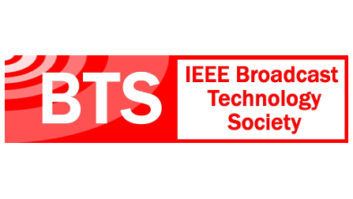WASHINGTON — The FCC has voted unanimously to propose eliminating some broadcaster EEO reporting requirements, yet another whack at regulations FCC chair Ajit Pai has pledged for each meeting, but not without commission Democrats calling for a deeper dive on the FCC’s role in promoting diversity.
The FCC is proposing no longer requiring a midterm report on employment practices to ensure EEO compliance. The FCC will still do midterm EEO reviews, per its statutory requirement.
Pai said at the Feb. 22 public meeting that nearly all the information broadcasters are required to provide is now in online files, so the midterm report is an unnecessary burden.
Commissioner Brendan Carr pointed out that by March 1, the FCC will have completed the transition of all broadcaster public files to an online database.
“Given the ease with which the Commission can access these files, there is no longer any reason to continue requiring broadcasters to file redundant paperwork,” Carr said.
One piece of information in the required Form 397 report — the number of full-time employees — determines whether a station is subject to EEO, so the FCC asks as part of the Notice of Proposed Rulemaking how it can identify stations subject to EEO without the form.
“It’s fair to ask if this format is still necessary when so much of the information it gathers is already available in the public file,” said Rosenworcel. “But there is no question about what remains necessary — and that’s compliance with the law. Under the Communications Act, this agency has a duty to develop rules to support a mid-term review of the employment practices of broadcast licensees. This is a responsibility we must take seriously and, on that point, I think the text of this rulemaking misses the mark.
“It focuses on the need to reduce the burdens of filers but neglects to emphasize what is most essential — the need to honor our Equal Employment Opportunity policies,” she added.
Commissioner Mignon Clyburn agreed that the bigger issue is whether the FCC is doing its job to ensure that broadcasters are seeking diverse employees.
“If we are going to take a weed whacker to EEO reporting obligations that the majority deems to be ‘unnecessary’ or ‘unduly burdensome,’ then we ought to simultaneously discuss compliance practices, in order to ensure that the rules we have on the books are effectively enforced,” Clyburn said.
Clyburn said she was pleased questions about FCC enforcement were included in the NPRM, which she signaled was the reason she was able to vote to approve it.
Commissioner Michael O’Rielly said he has long thought the form needed to go. He said now that EEO reports are filed online, the requirement is irrelevant. He also said the item should not be hijacked by the larger issue — of FCC enforcement and diversity — the Democrats were raising, or by edits proposed in the 11th hour when he is trying to get home for his young child’s bath time.











